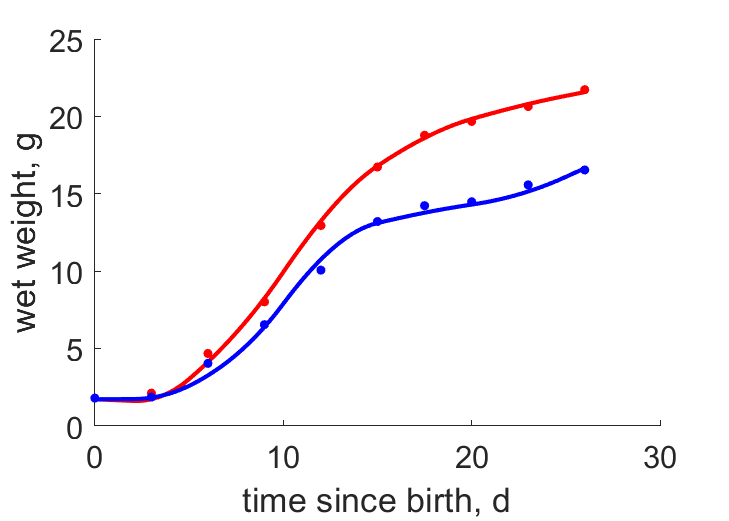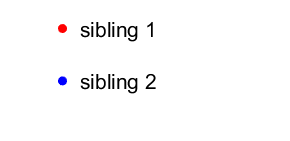Predictions & Data for this entry
| Model: std | climate: A, Cwa, Cwb | migrate: | phylum: |
| COMPLETE = 2.5 | ecozone: TPi | food: biCi | class: |
| MRE = 0.024 | habitat: 0iTh, 0iTf, 0iTi, 0iTg | gender: Dg | order: |
| SMSE = 0.001 | embryo: Tncfm | reprod: O | family: |
Zero-variate data
| Data | Observed | Predicted | (RE) | Unit | Description | Reference |
|---|---|---|---|---|---|---|
| ab | 20 | 20.4 | (0.01995) | d | age at birth | guess |
| tx | 27 | 26.81 | (0.007188) | d | time since birth at fledging | WangShen2013 |
| tp | 81 | 77.28 | (0.0459) | d | time since birth at puberty | guess |
| tR | 365 | 365 | ( 0) | d | time since birth at 1st brood | WangShen2013 |
| am | 5840 | 5837 | (0.0004409) | d | life span | guess |
| Wwb | 1.8 | 1.714 | (0.04793) | g | wet weight at birth | WangShen2013 |
| Wwi | 12.75 | 13.31 | (0.04373) | g | ultimate wet weight for females | ChoiPark2009 |
| Ri | 0.005479 | 0.005345 | (0.02458) | #/d | maximum reprod rate | WangShen2013 |
Uni- and bivariate data
| Data | Figure | Independent variable | Dependent variable | (RE) | Reference |
|---|---|---|---|---|---|
| tW |   | time since birth | wet weight | (0.02433) | WangShen2013 |
Pseudo-data at Tref = 20°C
| Data | Generalised animal | Aerodramus brevirostris | Unit | Description |
|---|---|---|---|---|
| v | 0.02 | 0.02094 | cm/d | energy conductance |
| p_M | 18 | 699.4 | J/d.cm^3 | vol-spec som maint |
| k_J | 0.002 | 0.0281 | 1/d | maturity maint rate coefficient |
| k | 0.3 | 0.2943 | - | maintenance ratio |
| kap | 0.8 | 0.928 | - | allocation fraction to soma |
| kap_G | 0.8 | 0.7997 | - | growth efficiency |
| kap_R | 0.95 | 0.95 | - | reproduction efficiency |
Discussion
- Feeding is reduced just before fledge
- Males are assumed not to differ from females
- mod_1: v is reduced
- mod_2: Pseudo-data point k is used, rather than k_J; Data set tp and parameter t_R are added, the latter replacing clutch interval t_N. Postnatal T is based on PrinPres1991, see get_T_Aves. See further the revision page, theme puberty
Bibliography